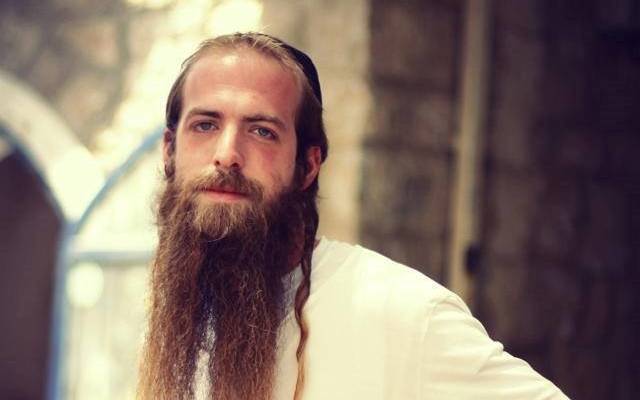“I want my music to take you on a journey and my melodies to help you tap into an uplifting vibe,” explains Menachem Engel, who produces electronic music for films, commercials, and video games.
The streets of Queens, New York, where music producer Menachem Engel was raised, are a far cry from northern Israel’s lush forests and rolling hills.
“I love living here,” Engel told United with Israel. “It’s calm and open, and that helps me create,” said the thirty-something producer who immigrated to Israel in 2005 and produces electronic music under the moniker Kabbalistic Village.
Engel was raised in a traditional Orthodox home, but eventually, after discovering the teachings of 18th-century hasidic sage Rabbi Nachman of Breslov, made his way to Tzfat (Safed), a center for the study of Jewish mysticism located in Israel’s Galilee region.
“When I got up here, I began immersing myself in both Breslov learning and electronic music – ambient, trance, and eventually dubstep. I got a computer, downloaded some music software, watched YouTube tutorials, and started recording music,” Engel says.
“My dad introduced me to really good music at a young age,” he continues. “We were part of the ‘black-hat’ yeshiva world, but he listened to Neil Young, the Smashing Pumpkins, Paul Simon, and others.”
Influenced by his father’s appreciation for different styles of music, Engel dabbled in metal and trance music in his teens before discovering his trademark sound, a combination of downtempo beats, eastern instrumentation, and vocal samples.
As Kabbalistic Village, Engel has licensed his songs for commercials, video games, and short films. Ferrari, for instance, used one of his tracks for a time-lapse clip featuring a race car, while Ford used another track for a commercial in India, where Engel has garnered many fans.
“After I discovered [late Indian superstar] Ravi Shankar’s music, I started combining electronic beats with world music and more organic acoustic sounds. I began incorporating sitar and flutes, and then mixing in hip hop and metal influences also,” he explains.
Blessing in Disguise
“The whole corona crisis created an opportunity for me to create more,” says Engel, who had worked part-time in a gallery in Tzfat’s artists’ quarter, a usually bustling knot of winding alleyways that was emptied of tourists during the global health pandemic.
“I’ve had a chance to experiment more musically these last few months. Usually, I’m trying to write and record as quickly as I can, but this period gave me a chance to stretch out and try different things.”
“When I’m learning the Talmud or a hasidic story,” he continues, “I try to visualize the action and conjure up in my mind the type of music that would accompany what is occurring in the text. Sometimes I name tracks after what I’m learning, such as ‘Master of Prayer’ or ‘The Lost Princess.’”
Indeed, Engel credits the study of Jewish texts, prayer, and life in Israel with playing a big role in the music he makes. “I pray to God to send me a good tune, especially in those times when I feel dry and can’t come up with melodies,” he says.
Engel believes that inspiration can come from any direction.
“I settled on the name ‘Kabbalistic Village’ after seeing it in a poorly translated book of stories of the Baal Shem Tov,” the 18th-century rabbi credited with founding the hasidic movement. “In that book, it said he lived in a ‘Kabbalistic village.’ I liked the sound of that phrase.”
“I like the idea of a place that has flowing streams and forests, like Tzfat, where people can meditate, learn Torah, and practice real Judaism,” he adds.
A Long, Strange Trip
While Engel wants his music to take listeners “on a journey,” he is sometimes surprised by the places his music ends up, and specifically the different types of buyers who purchase and license his tracks from Audiojungle, a platform on which composers and producers sell their work.
“A German zombie video game used one of my tracks, which became a big hit among players,” he says. “It was surreal to have all of these people in Germany, playing this apocalyptic game listening to music made by a hasidic Jew in Israel.
“Another tune was purchased by a couple in Tennessee who used it in a wedding video. I’m also pretty sure they didn’t envision a guy like me making the beat.”
Engel laughs as he marvels at his tunes traveling to faraway places.
“Music is everywhere nowadays. And you can be totally religious and make the type of music I make.”










